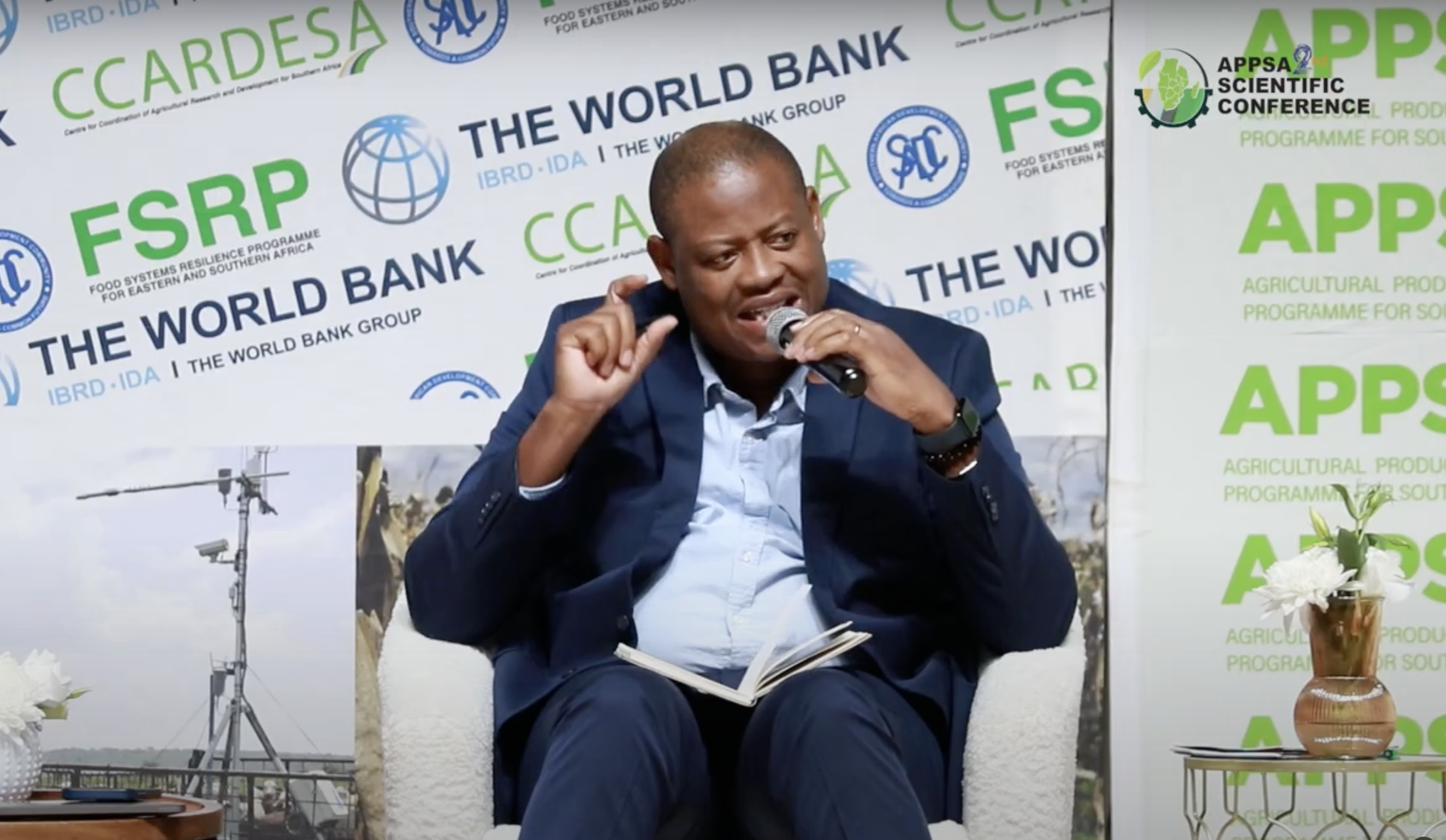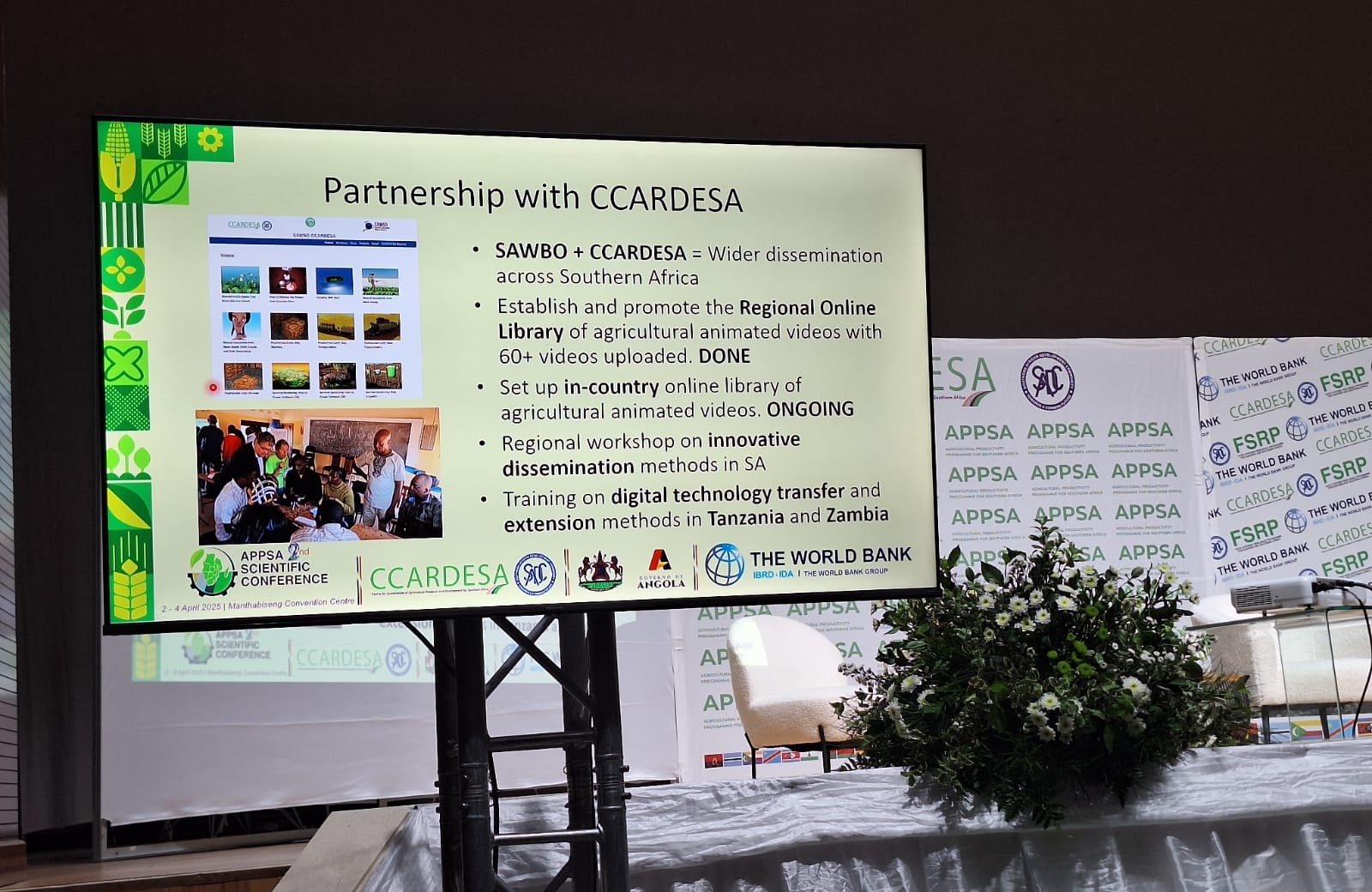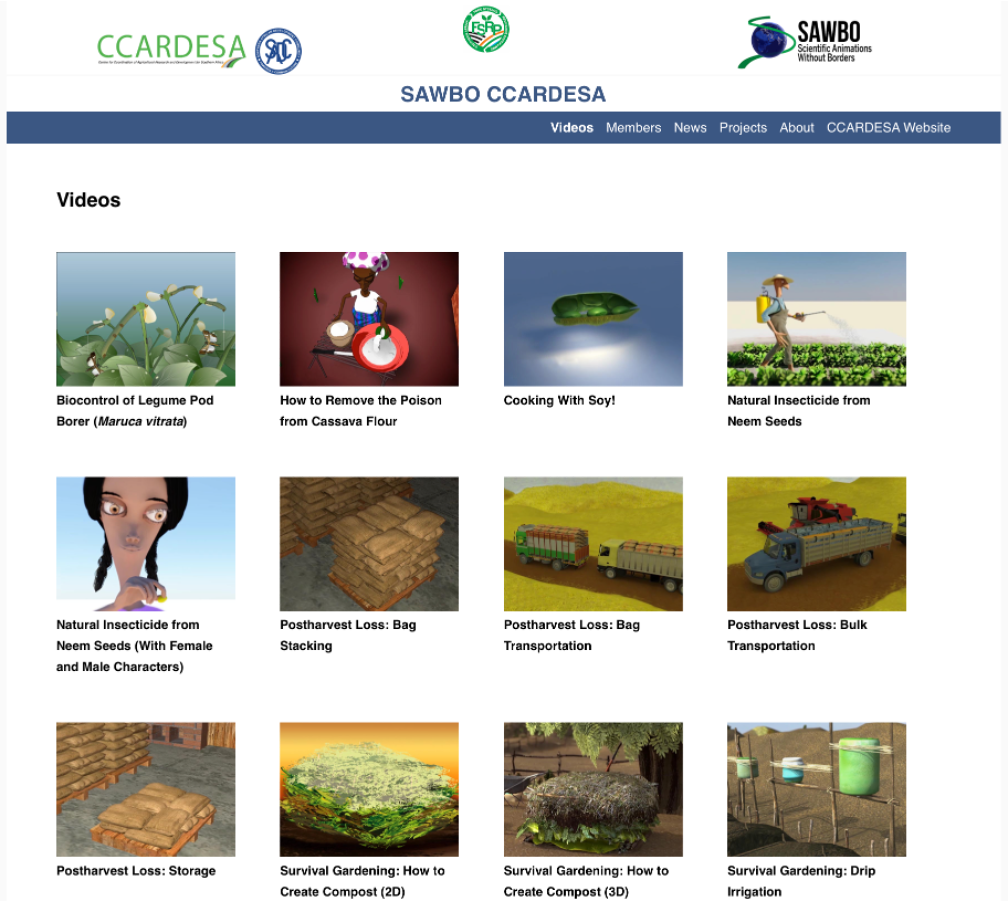
At a time when agricultural extension systems in Southern Africa are facing unprecedented challenges - underfunding, staff shortages, and outdated delivery methods - a digital solution is offering a beacon of hope: the Scientific Animations Without Borders (SAWBO), an initiative led by Professors at Purdue University, in the United, States of America.
As a keynote presenter at the recent APPSA scientific conference, Sostino Mocumbe from the Center for Coordination of Agricultural Research and Development for Southern Africa (CCARDESA), highlighted the growing impact of SAWBO’s animated videos in revolutionizing farmer education across the region. “The agent-to-farmer ratio in some countries is as high as 1:10,000,” Mocumbe noted. “In this environment, we need scalable, accessible, and cost-effective tools to bridge the information gap.”
The Problem: An Overburdened Extension System
Southern Africa's agricultural extension services are often stretched too thin. Traditional models rely heavily on face-to-face training, which is expensive and logistically demanding. Moreover, high illiteracy rates and gender disparities frequently limit access for women and marginalised farmers. As a result, knowledge transfer is slow, diluted, and uneven.
The Opportunity: Mobile Penetration and Digital Access
The story is changing with the rise of digital technologies. According to the 2025 SADC ICT Observatory, mobile penetration in the region has reached an average of 95.2%, with 57.2% internet penetration. “This mobile revolution means nearly every household, even in rural areas, has access to a digital device capable of receiving training content,” Mocumbe explained.
The Solution: Animated Videos as a Game-Changer
 |  |
SAWBO’s animated videos, delivered via smartphones, are scientifically validated and designed to be engaging, culturally appropriate, and linguistically diverse. These videos simplify complex topics - such as climate-smart agriculture, pest management, and post-harvest handling - into clear, visual lessons.
In Mozambique, studies found that farmers trained via SAWBO videos performed as well or better than those trained by traditional extension agents. In Nigeria, knowledge retention increased by 87% compared to text-based training. Malawi’s experience is equally striking: women farmers using mobile agricultural videos reported a 27% increase in crop yields, demonstrating how digital tools can also close gender gaps in agricultural education.
Scaling Impact Through Regional Partnership
CCARDESA’s partnership with SAWBO is ensuring these benefits reach more farmers. Together, the two organisations have established a Regional Online Library of over 60 agricultural videos, available in multiple local languages. An in-country rollout is currently underway, supported by training workshops in Tanzania and Zambia on digital dissemination methods.
Importantly, these initiatives are being implemented under the CCARDESA coordinated Food Systems Resilience Programme (FSRP), a World Bank-funded regional initiative aimed at enhancing the resilience of food systems in the face of climate change, market disruptions, and systemic vulnerabilities.
 |  |
Why Digital Extension Matters Under FSRP
Digital extension and innovative communication tools like SAWBO are at the heart of FSRP’s strategy to improve the availability, accessibility, and usability of climate-smart agricultural knowledge and innovations across Southern Africa. Given the programme’s goals to strengthen regional collaboration, build adaptive capacity, and promote inclusive access to agricultural services, digital tools offer unmatched scalability, speed, and cost-effectiveness.
By leveraging mobile platforms and locally adapted animated videos, CCARDESA - through FSRP - is helping to overcome language, literacy, and logistical barriers. These tools empower farmers with timely, actionable knowledge, improve productivity, and support informed decision-making, across all demographics, including women and youth, who are often excluded from traditional extension systems.
“The SAWBO app exemplifies what is possible when global expertise meets local context,” Mocumbe emphasized. With over 300 language adaptations, 150+ topic areas, and more than 55 million people reached globally, the platform is both low-cost and high-impact, costing mere pennies per person reached.
Policy Implications and the Road Ahead
Mocumbe urged policymakers to integrate digital tools like SAWBO into national extension strategies. A hybrid model - combining traditional and digital methods - can enhance reach, efficiency, and farmer outcomes. He also called for multi-stakeholder partnerships, including governments, NGOs, and the private tech sector, to sustain this digital transition.
“The future of agricultural extension is not only face-to-face - it’s screen-to-screen, voice-to-ear, video-to-village,” said Mocumbe.
📽Explore the Online Video Library: 🔗https://ccardesa.sawbo-animations.org
🎥 Watch highlights of Day 2 of the Conference, featuring an extract of the presentation by Sostino Mocumbe on how digital tools like SAWBO are transforming agricultural extension in Southern Africa: 🔗 https://www.youtube.com/watch?v=jiZiSN3GAjk






